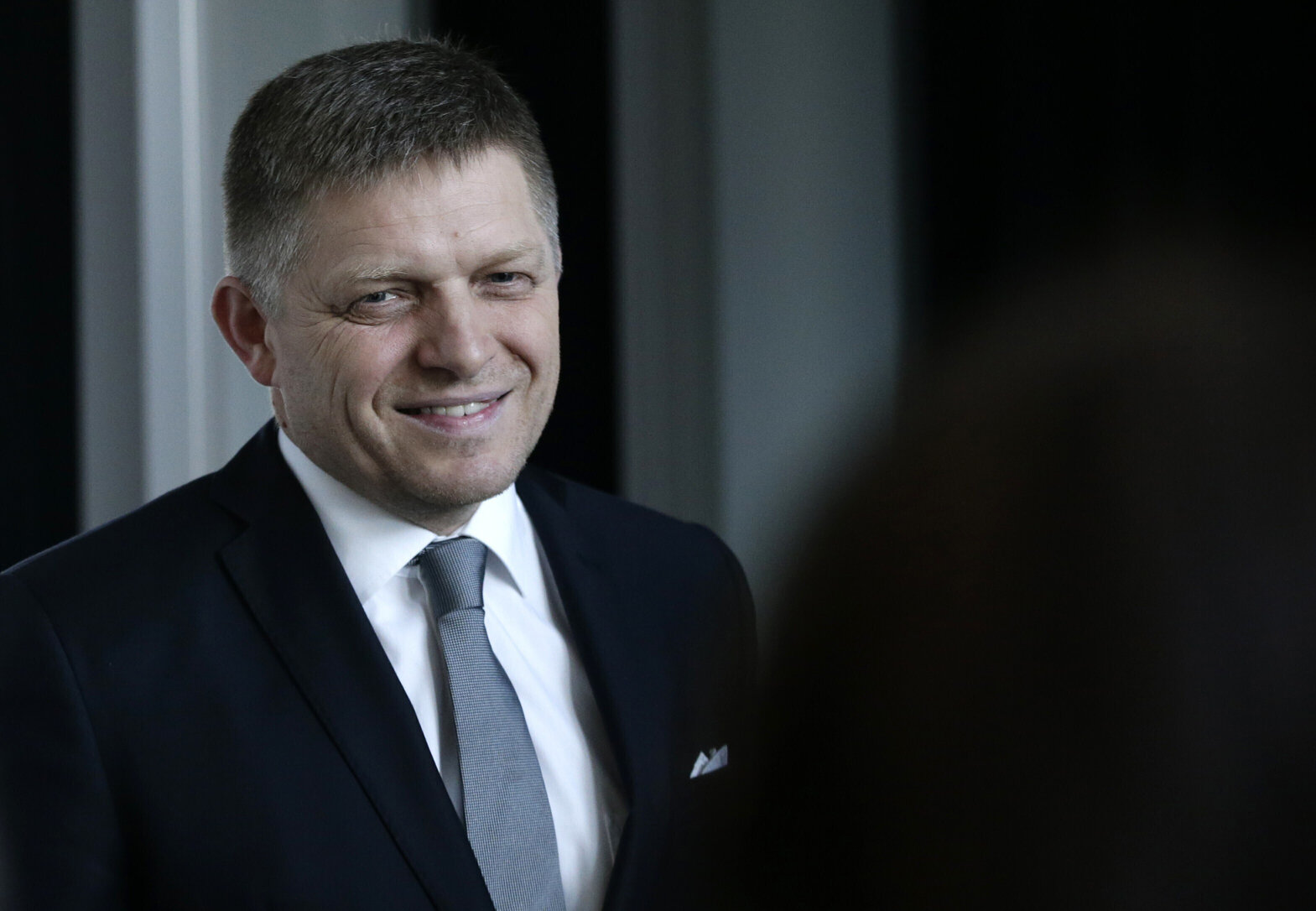Petr
Administrator
Slovakia is a relatively sheltered Eastern European country where Atlanticist neocons are currently in power, but there is plenty of anti-globalist discontent around as well, expressed both by right-wing nationalists and by Old Left (the "Dixiecrat" Social Democrats of Robert Fico).
I find it a positive phenomenon that anti-liberals there are becoming more "conscious," or not being just a bunch of grumbling boomers who complain about those darn kids, but realize that serious political struggle is needed to stop the emasculation of their nation.
Also, I think the best sign of Overton Window shifting is not necessarily that radical parties are getting more votes, but that even former centrists begin to use edgy language - and the OLANO party, that this cuck complains about, is a very typical big-tent, catch-all centrist party:

 newsnow.tasr.sk
newsnow.tasr.sk

MP Juraj Krupa (photo by TASR)
Bratislava, July 28 (TASR) – OLaNO MP Juraj Krupa has reported on his Facebook account that he’s leaving the OLaNO caucus, explaining that he has reservations towards what he perceives as a shift in OLaNO’s values and the party’s leaning towards ultra-conservatism.
“The pillar of the current coalition of four parties was a key agreement on the protection of democratic values, and I don’t intend to give up on this after leaving the OLaNO caucus. However, I fundamentally refuse to legitimise extremists by inviting them to real power. I refuse to participate in moves leading to the corrosion of the perception of fundamental democratic values and the principles on which this coalition of four governing parties was built,” the MP explained, adding that he cannot be in the company of MPs who demanded the deaths of state representatives at the hands of a firing squad and erected gallows outside the homes of medics during the pandemic restrictions.
Krupa claimed that he’s discovered that OLaNO in 2022 is no longer the same party it was in 2020. “In little more than two years at the helm of the Government, it’s made so many U-turns in terms of values that it’s betrayed the principles on which it was based and the reason why so many people voted for the party in the general election. A party that presented itself as tolerant of different currents of opinion has become ultra-conservative,” wrote the MP.
Instead of engaging in the anti-corruption agenda, he claimed, the struggle against a so-called ‘liberal hell’ is beginning to escalate in the OLaNO caucus.
“Surprisingly, elements of [Hungarian President Viktor] ‘Orban’s nationalism’ have begun to be tolerated in the caucus, and OLaNO MPs have been flirting with the idea of cooperating with extremists – those extremist MPs who have consistently undermined the legitimacy of this governing coalition during the difficult years of the pandemic, rising inflation, the energy crisis and Russia’s war against Ukraine,” he remarked.
In his opinion, the culmination of the OLaNO caucus’s inclination towards ultra-conservatism is accepting the possibility of forming a minority government with the ad hoc support of various “criminals, extremists and fascists”. “To consider staying in the governing coalition under such unacceptable conditions has become a red line for my parliamentary conscience. I can’t cross it,” stressed the MP.
When Krupa officially leaves, the OLaNO caucus will have 47 MPs. The caucus has recently lost a number of MPs, with Martin Cepcek, who was expelled from it last summer, being the first. In October 2021, Jan Kroslak departed from the caucus, citing his long-lasting disagreement with the manner in which OLaNO leader Igor Matovic has engaged in politics. In January 2022, Jan Micovsky left due to what he described as his dissatisfaction with the state of affairs at the Agriculture Ministry, which he previously headed as minister. The most recent two MPs to leave the caucus were Romana Tabak and Katarina Hatrakova, who were both expelled after they didn’t vote in Parliament in favour of a motion meant to give the authorities consent to remand Smer-SD head and MP Robert Fico in custody.
I find it a positive phenomenon that anti-liberals there are becoming more "conscious," or not being just a bunch of grumbling boomers who complain about those darn kids, but realize that serious political struggle is needed to stop the emasculation of their nation.
Also, I think the best sign of Overton Window shifting is not necessarily that radical parties are getting more votes, but that even former centrists begin to use edgy language - and the OLANO party, that this cuck complains about, is a very typical big-tent, catch-all centrist party:

MP Krupa Leaving OLaNO Caucus | NEWS NOW
 newsnow.tasr.sk
newsnow.tasr.sk
MP Krupa Leaving OLaNO Caucus
July 28, 2022
MP Juraj Krupa (photo by TASR)
Bratislava, July 28 (TASR) – OLaNO MP Juraj Krupa has reported on his Facebook account that he’s leaving the OLaNO caucus, explaining that he has reservations towards what he perceives as a shift in OLaNO’s values and the party’s leaning towards ultra-conservatism.
“The pillar of the current coalition of four parties was a key agreement on the protection of democratic values, and I don’t intend to give up on this after leaving the OLaNO caucus. However, I fundamentally refuse to legitimise extremists by inviting them to real power. I refuse to participate in moves leading to the corrosion of the perception of fundamental democratic values and the principles on which this coalition of four governing parties was built,” the MP explained, adding that he cannot be in the company of MPs who demanded the deaths of state representatives at the hands of a firing squad and erected gallows outside the homes of medics during the pandemic restrictions.
Krupa claimed that he’s discovered that OLaNO in 2022 is no longer the same party it was in 2020. “In little more than two years at the helm of the Government, it’s made so many U-turns in terms of values that it’s betrayed the principles on which it was based and the reason why so many people voted for the party in the general election. A party that presented itself as tolerant of different currents of opinion has become ultra-conservative,” wrote the MP.
Instead of engaging in the anti-corruption agenda, he claimed, the struggle against a so-called ‘liberal hell’ is beginning to escalate in the OLaNO caucus.
“Surprisingly, elements of [Hungarian President Viktor] ‘Orban’s nationalism’ have begun to be tolerated in the caucus, and OLaNO MPs have been flirting with the idea of cooperating with extremists – those extremist MPs who have consistently undermined the legitimacy of this governing coalition during the difficult years of the pandemic, rising inflation, the energy crisis and Russia’s war against Ukraine,” he remarked.
In his opinion, the culmination of the OLaNO caucus’s inclination towards ultra-conservatism is accepting the possibility of forming a minority government with the ad hoc support of various “criminals, extremists and fascists”. “To consider staying in the governing coalition under such unacceptable conditions has become a red line for my parliamentary conscience. I can’t cross it,” stressed the MP.
When Krupa officially leaves, the OLaNO caucus will have 47 MPs. The caucus has recently lost a number of MPs, with Martin Cepcek, who was expelled from it last summer, being the first. In October 2021, Jan Kroslak departed from the caucus, citing his long-lasting disagreement with the manner in which OLaNO leader Igor Matovic has engaged in politics. In January 2022, Jan Micovsky left due to what he described as his dissatisfaction with the state of affairs at the Agriculture Ministry, which he previously headed as minister. The most recent two MPs to leave the caucus were Romana Tabak and Katarina Hatrakova, who were both expelled after they didn’t vote in Parliament in favour of a motion meant to give the authorities consent to remand Smer-SD head and MP Robert Fico in custody.
Last edited:













